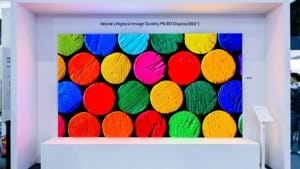Apple’s next AirTag to launch in 2025 with better privacy features
Apple plans to launch a second-gen AirTag in 2025, which will improve privacy with tamper-proof features and enhanced range for better tracking.

Apple is preparing to release its second-generation AirTag in 2025, addressing privacy concerns raised since its initial launch. The small tracking device has proven to be a helpful tool for many, but it has also faced criticism due to reports of misuse, including stalking incidents. In response, Apple aims to make the new version of the AirTag more secure and tamper-resistant.
Table Of Content
Improved privacy measures to tackle concerns
The original AirTag introduced innovative tracking features, but its use in unwanted situations led to widespread criticism. Apple reduced these issues by adding sound alerts that notify users of an unknown AirTag nearby. However, the current model’s speaker can be removed relatively easily, potentially making it harder to detect.
The upcoming AirTag will feature a more tamper-proof design, making it significantly harder to disable the speaker. This update is part of Apple’s commitment to improving user safety and addressing misuse concerns.
Enhanced technology without major design changes
Mark Gurman’s Power On newsletter states that the new AirTag is not just about privacy improvements. It will also include technological upgrades, such as a better wireless range and an improved onboard chip for more reliable performance. These enhancements aim to provide users with a smoother and more accurate tracking experience.
Despite these internal improvements, the AirTag’s overall design is expected to remain unchanged. It will retain its compact and sleek look, which has become a familiar part of Apple’s product lineup.
Expected launch date
The new AirTag will be launched in mid-2025. This timeline reflects Apple’s efforts to refine the device’s functionality and address feedback from satisfied customers and concerned critics.
The second-generation AirTag is shaping up to be a smarter and safer device. It will likely continue to be an essential tool for those needing reliable tracking solutions while offering better protection against misuse.
















